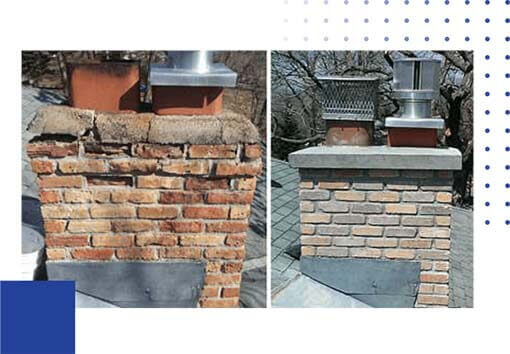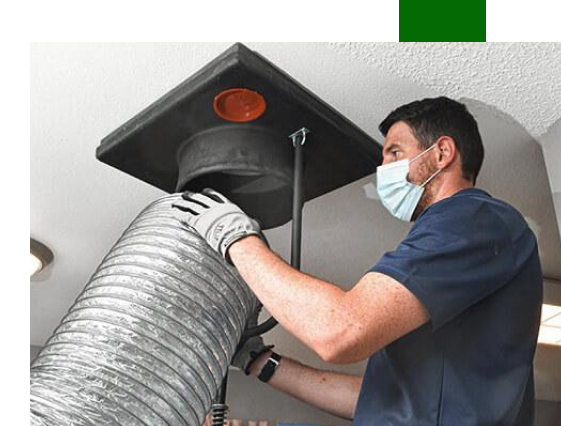Chimney Maintenance 101: Chimney Fire Prevention Tips
A crackling fire can turn any winter evening into a cozy retreat. Yet, behind the charm of a fireplace lies a potential danger that many homeowners overlook—chimney fires. Without proper care, your chimney can become a silent threat, harboring flammable materials that could ignite at any moment. The good news? With the right maintenance, you can significantly reduce these risks and enjoy your fireplace worry-free. This guide will walk you through chimney fire prevention tips to keep your home safe and your fireplace operating efficiently.
Why Chimney Maintenance Is Crucial
Your chimney plays a vital role in venting smoke and gases safely out of your home. Over time, however, soot and a highly combustible substance called creosote can build up along the inner walls. This buildup is the leading cause of chimney fires, according to the National Fire Protection Association. Because a neglected chimney doesn’t just risk a fire—it can lead to poor indoor air quality, carbon monoxide exposure, and costly structural damage. That’s why understanding and applying chimney fire prevention tips is key to a safer home.
Essential Chimney Maintenance Practices
Annual Inspections Are a Must
Experts recommend scheduling a professional inspection at least once a year. A certified technician will assess the integrity of your chimney, look for blockages or damage, and measure creosote levels. This is your first line of defense in preventing a fire hazard.
Don’t Skip Regular Cleaning
How often you should clean your chimney depends on how frequently you use it. Frequent fireplace users may need cleanings multiple times per year. Regular cleanings remove soot, creosote, and any nesting materials or debris that may have entered from above.
For comprehensive and safe service, consider reaching out to a trusted chimney cleaning provider who has the right tools and expertise to do the job thoroughly.
Burn the Right Kind of Wood
The type of firewood you use directly impacts the cleanliness of your chimney. Seasoned hardwoods like oak and hickory burn hotter and produce less creosote compared to unseasoned or softwoods like pine. Avoid burning painted or treated wood, cardboard, or trash, all of which release harmful chemicals and leave behind excessive residue.
Install a Chimney Cap
A chimney cap serves several protective functions. It keeps rain, animals, and debris out, and it helps prevent downdrafts. Moisture can damage both the chimney and the surrounding masonry, so having a well-fitted cap can extend the life of your chimney and protect your home from hidden damage.
Stay Alert to Warning Signs
Pay attention to strange smells, smoke backing into your home, or unfamiliar noises when the fireplace is in use. These can indicate creosote buildup, animal nests, or other issues that demand immediate professional attention.
If you’re experiencing these warning signs, a qualified sweep technician can quickly diagnose and address the problem before it escalates.
Additional Chimney Fire Prevention Tips
Install Essential Detectors
Smoke detectors and carbon monoxide alarms should be installed near the fireplace and in bedrooms. Test them monthly and replace the batteries at least twice a year. Carbon monoxide is invisible and odorless but can be deadly, making these alarms vital for any home with a fireplace.
Maintain Safe Distances
Keep flammable materials—like furniture, rugs, and holiday decorations—at least three feet away from the hearth. Always use a fire screen or glass doors to prevent embers from escaping into the room.
Educate Everyone in the Household
Make sure all household members understand basic fireplace safety: how to operate the damper, start a safe fire, and what to do in case of an emergency. Establish a fire escape plan and practice it periodically.
When to Call a Professional
After learning about chimney fire prevention tips, you will learn about signs that needs expert attention. Here’s when to reach out to a pro:
- Difficulty starting or maintaining a fire
- Persistent smoky odor
- Black, flaky substance (creosote) visible inside the flue
- Cracks in the chimney structure
- Following severe weather events or earthquakes
Don’t wait for a small issue to become a disaster. Reach out to experienced professionals who can ensure everything is functioning safely and efficiently.
Frequently Asked Questions (FAQs)
How often should I have my chimney cleaned?
It’s recommended to clean your chimney at least once a year. If you use your fireplace frequently, consider multiple cleanings throughout the heating season.
Can I clean the chimney myself?
While it’s possible to do light maintenance like ash removal, a full cleaning and inspection should be left to professionals who have the proper equipment and experience.
What is creosote, and why is it dangerous?
Creosote is a flammable byproduct of burning wood. It builds up inside chimneys and is the number one cause of chimney fires.
What kind of wood should I burn in my fireplace?
Use seasoned hardwoods such as oak or maple. These woods burn more efficiently and produce less creosote compared to soft or green wood.
Do gas fireplaces need maintenance too?
Absolutely. Gas fireplaces still require vent inspection, cleaning, and checks for blockages or damage to ensure they operate safely.
Keep It Clean, Keep It Safe
Proper chimney maintenance isn’t just about cleanliness—it’s about peace of mind. With routine inspections, the right firewood, and attention to warning signs, you can protect your home and family from avoidable hazards.
For reliable help, trust a certified expert to keep your chimney in top condition. And if you’re looking for smarter ways to manage home maintenance digitally, explore solutions from this platform to streamline your upkeep routines.

